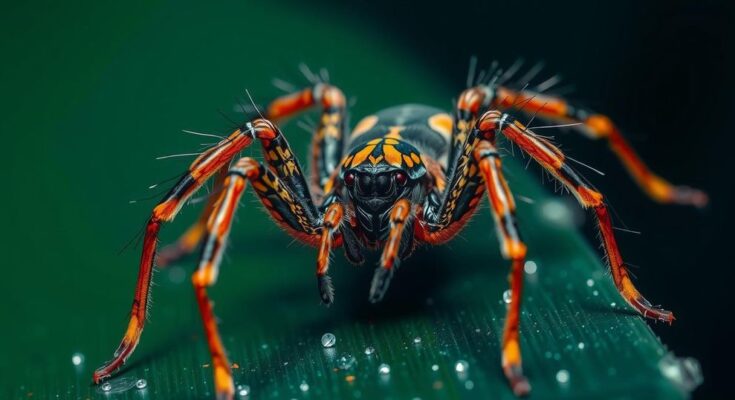A South Korean man was arrested at Lima airport for attempting to smuggle 320 tarantulas, 110 centipedes, and 9 bullet ants concealed on his body. This illegal activity highlights the rampant issue of wildlife trafficking, particularly for endangered species native to Peru’s Amazon region. Peruvian authorities have launched an investigation into the incident, emphasizing the need for enhanced protection against such crimes.
A man attempting to board a flight from Lima, Peru, was apprehended by customs due to his suspiciously enlarged abdomen. Upon investigation, authorities discovered he had concealed approximately 320 tarantulas, 110 centipedes, and nine bullet ants, all placed in small plastic bags obscured by filter paper. Each bag was secured to his body with strong adhesive tape and girdles. These specimens were native to the Amazon region and included 35 adult tarantulas, which are considered endangered species in Peru. The individual, a 28-year-old South Korean, was taken into custody, pending further investigation regarding illegal wildlife trafficking, a critical issue given the high market demand for exotic animal species.
The illegal wildlife trade represents a significant global problem, estimated to be worth between $30 billion and $43 billion annually. This trade often exploits biodiversity in impoverished nations, shipping sought-after species to affluent countries where collectors pay premium prices. Endangered species such as tarantulas command even higher prices, particularly around seasonal holidays when demand escalates. The exotic pet industry thrives on a mixture of demand for pets, souvenirs, and traditional medicine, complicating conservation efforts.
In summary, this incident underscores the severe challenge of illegal wildlife trafficking, where endangered species are often smuggled for personal gain. Authorities are increasingly vigilant as signs of such trafficking rise, particularly during peak demand seasons. As illustrated by this case, the trade not only jeopardizes wildlife populations but also highlights a broader issue involving biodiversity loss and exploitation of developing nations.
Original Source: www.nytimes.com




